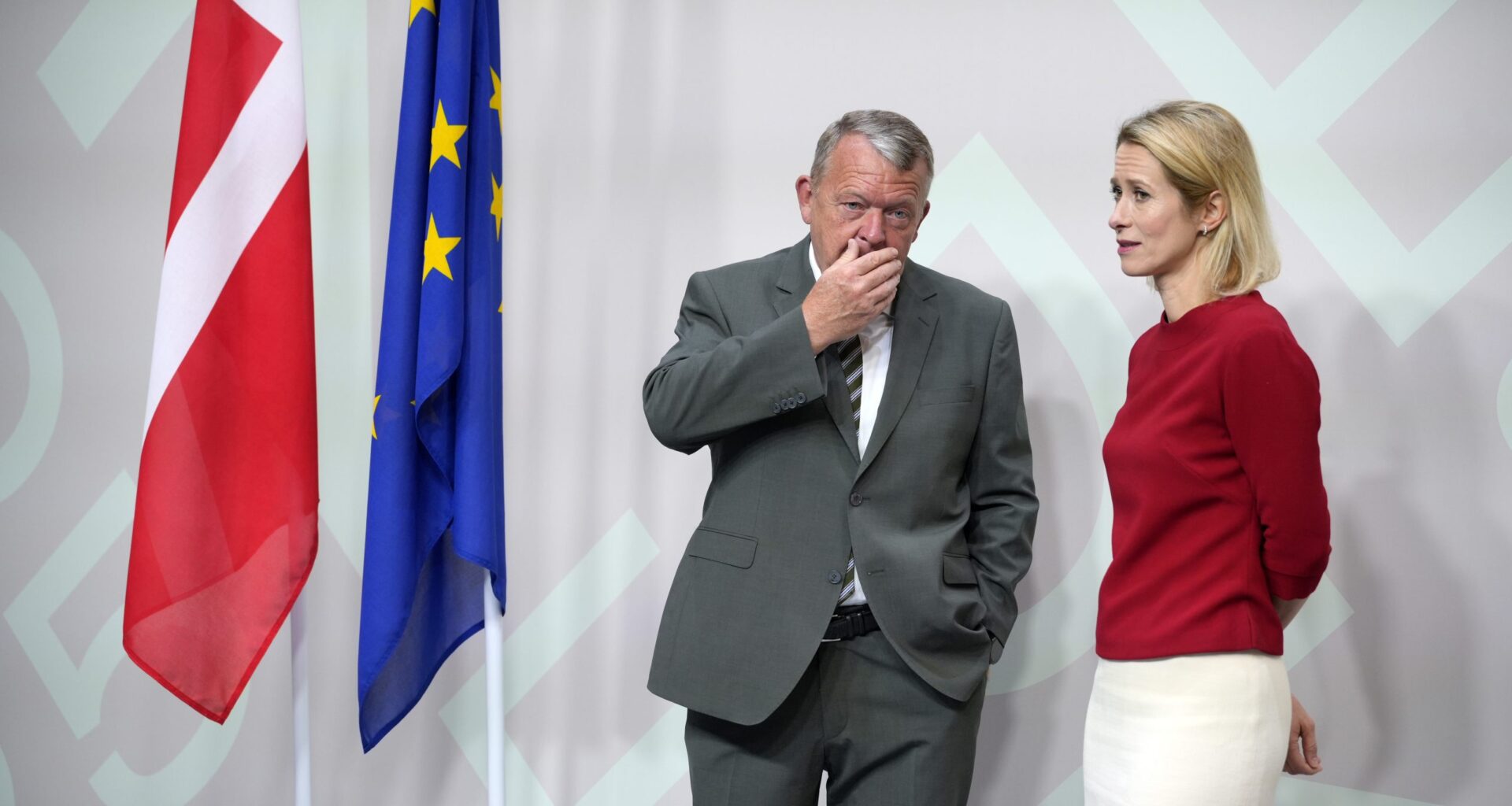COPENHAGEN — EU foreign ministers meeting informally will make a new attempt to confront their deep divisions over the bloc’s response to Israel’s war in Gaza, but sanctions remain a distant prospect.
EU’s top diplomat Kaja Kallas struck a sombre note at her arrival at the meeting, telling reporters she was not “optimistic” the bloc would move towards sanctioning Israel over the war in Gaza. Differences among its member states prevail, she added.
Denmark, who holds the EU’s rotating presidency, has been the latest country to toughen its stance towards Israel.
Foreign Minister Lars Løkke Rasmussen said his country was prepared to back suspending trade cooperation with Israel, sanctioning far-right Israeli ministers, and banning imports from illegal settlements.
Yet, despite mounting outrage over the war, most EU member states are reluctant to approve such measures for fear of a domestic backlash.
Dutch Foreign Affairs Minister Caspar Veldkamp resigned last week because the government refused to take a harder line on Israel. The Dutch example shows “how polarised the debate is”, said Defence Minister Ruben Brekelmans, who is replacing Veldcamp in Copenhagen.
“But given what’s happening every day [in Gaza] it should be possible to become more united,” Brekelmans added.
Among EU member states, Belgium is the latest country facing a government crisis of its 5-way coalition over its stance on Gaza.
Renewed Spanish push
Spain’s Foreign Minister Albares said his government had submitted an action plan to end the famine in Gaza and put pressure on Israel, blaming the EU to have done “too little, too late.”
A Spanish “non-paper”, seen by Euractiv and circulated to member states before the meeting, calls for the abandonment of the ‘business as usual’ with Israel. It proposes dialogue and cooperation based on tangible results.
In July, the EU’s diplomatic service had floated a menu of possible measures against Israel over its conduct in Gaza. These included suspending all or part of the trade agreement with Israel, sanctioning individuals such as cabinet ministers, military officers or extremist settlers, imposing an arms embargo, or curtailing scientific cooperation.
However, none of these have secured the necessary support.
According to EU diplomats, a partial suspension of Horizon Europe, the bloc’s research and innovation programme, could be the first step and the easiest option. However, even with this measure, it is unlikely that the required majority of EU countries will be reached.
UN showdown on Gaza?
The United States overnight announced that the State Department would revoke visas for representatives of the Palestinian Authority to attend next month’s UN General Assembly in New York.
That gathering was expected to feature a French-led push to recognise a future Palestinian state.
Asked about Washington’s move, France’s Foreign Minister Jean-Noël Barrot warned that UN meetings “should not be subject to any restrictions on access.”
Kallas said she expected the visa issue to crop up in Copenhagen, adding that ministers would defend the principle that “the United Nations is a place for all nations with status” in the body.
(adm)
